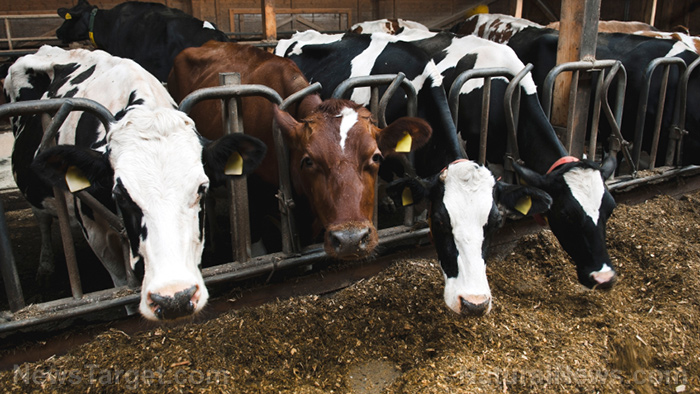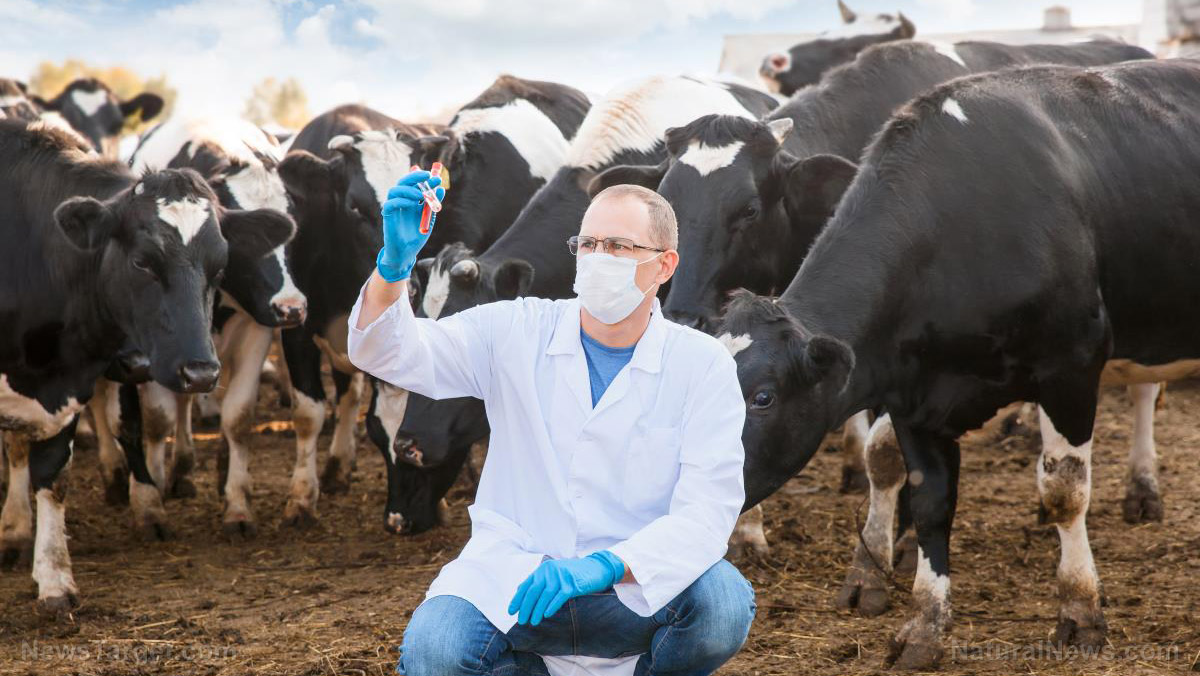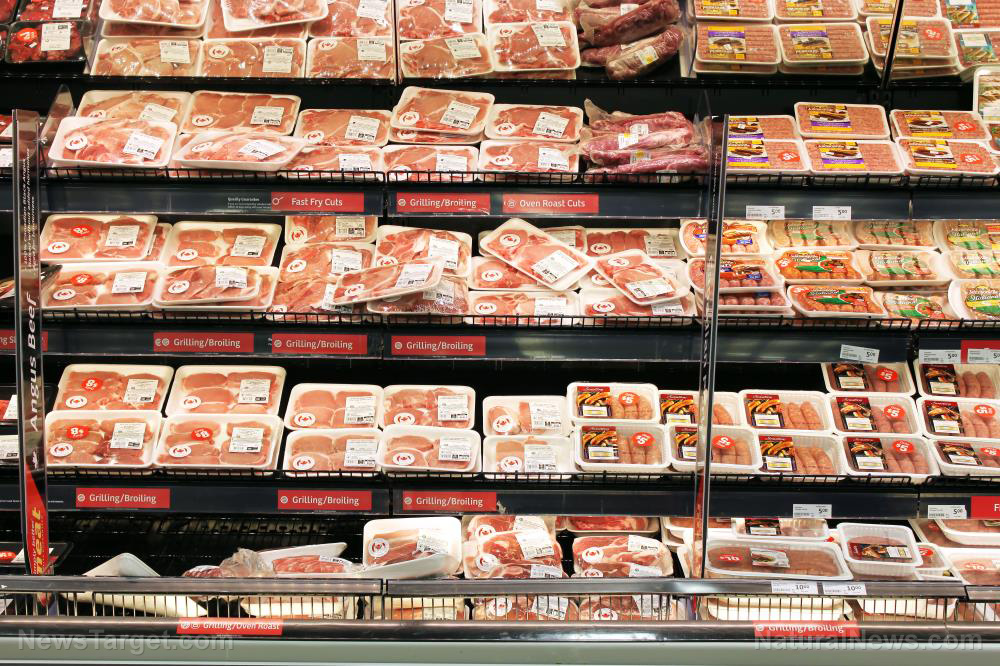
A new drug called Bovaer is being slipped into the U.S. food supply as a means to stop climate change, or so we are told.
Beef and dairy cattle are eating the drug, made by DSM-firmenich – BlackRock is a major shareholder in DSM-firmenich, by the way – as part of an effort by the Food and Agriculture Organization (FAO) of the United Nations (UN) to decrease animal methane releases and thus cool planetary temperatures.
The idea was hatched back in 2006. The FAO started fearmongering about cattle casting a "long shadow" with their flatulence, which comes out slightly warm and stinky much to the chagrin of the globalists who fear that the weather might get too hot if something is not done to cap those smelly fumes.
A report issued at that time by the UN claimed that livestock is responsible for 18 percent of the world's greenhouse gases. It turns out this figure was pulled out of a bull's behind, so to speak.
(Related: Did you hear that the FDA just approved a new drug called 3-NOP for dairy cattle that supposedly stops them from farting – but at what cost?)
Animal farts are normal
Dr. Frank Mitloehner, an air quality specialist in the Department of Animal Sciences at UC Davis, says the report and its claims are wildly flawed. And the FAO was later forced to admit that Mitloehner is right.
"I must say honestly that he has a point," commented one of the study's authors about Mitloehner's discovery that the paper only looked at "the tailpipe emissions of cars" rather than conduct "a comprehensive life-cycle assessment."
"We factored in everything for meat emissions, and we didn't do the same thing with transport – we just used the figure from the IPCC ..."
The researchers now admit that while they did conduct a full life-cycle analysis on meat, taking into account both direct and indirect emissions, the only thing factored in as far as the transportation of meat is concerned was direct emissions, "leaving out activities like extracting fuel or the disposal of old cars."
"While FAO researchers initially stuck with their 18 percent figure based on their confidence in what makes up total emissions worldwide, a subsequent FAO study calculated global livestock emissions slightly lower, at 14.5 percent."
Mitloehner says that the way to create "less heat," if that is what the climate cultists are worried about, is to do "smarter animal farming, not less farming."
"Producing less meat and milk will only mean more hunger in poor countries," he warns.
It turns out that the original FAO report from 2006 that started all this does not even contain evidence to back the claim that the "livestock sector" is responsible for producing too many greenhouse gases like carbon dioxide.
Much of the public confusion over the supposed role that meat and milk play in climate change is attributable to just two sentences in the report that are printed only in the executive summary and nowhere else in the body of the text:
"The livestock sector is a major player, responsible for 18 percent of greenhouse gas emissions measured in CO2e (carbon dioxide equivalents). This is a higher share than transport."
Both of these sentences are factually wrong, and yet these false claims serve as the foundation of a decades-long quest by climate lunatics to stamp out animal flatulence and other natural processes that they strangely fear are going to destroy the planet.
"Methane emitted by livestock is part of the biogenic carbon cycle, a natural process," Mitloehner says.
The latest news about the climate cult's efforts to mass-drug meat animals with anti-farting drugs can be found at ClimateAlarmism.news.
Sources for this article include:
Please contact us for more information.



















